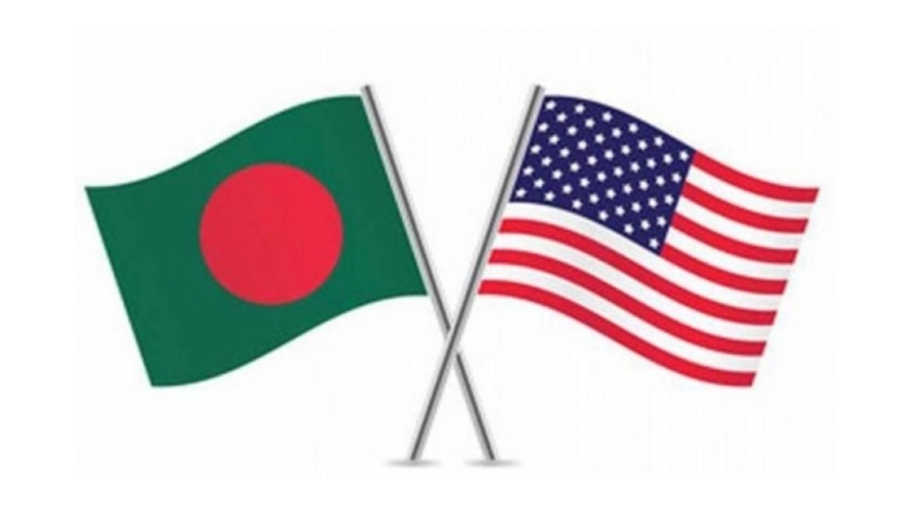US wants to further foster business ties with Bangladesh

A significant progresshas beenmade in boosting the US-Bangladesh business ties. With a view to promoting further the existing relations repeated meetings were held at different times. US-Bangladesh Business Council meetings recentlysignify America’s eagerness to develop business relationship with Bangladesh.
The meetings were held in participation with US-Bangladesh Business Council Chairman Kobos, Ambassador AtulKeshap and Bangladesh Prime Minister Sheikh Hasina and Foreign Minister Dr. A K Abdul Momen.
The prime minister while meetingUS Bangladesh Business Councilat Ganobhabantold them that Bangladesh is now pursuing long-term strategies to be among the high-income nations by 2041. She reiterated that Bangladesh has achieved self-sufficiency in food production, reached electricity to every household, improved the education standard and literacy, and created a more attractive climate for investment.
Moreover, she also said that Bangladesh has the most open Foreign Direct Investment policies in South Asia which includes a liberalized industrial policy, one-stop
service, an allowance for 100% foreign ownership, an easy exit policy, a 15-year tax exemption, a VAT exemption for imported machinery, streamlined services, and more.
The USA is well aware that Bangladesh is establishing 100 Special Economic Zones, 109 Hi-Tech and Software Technology Parks, and IT Training and Incubation Centers across the country. All these have triggered them to advance strategies of business partnership with Bangladesh.
Foreign Minister of Bangladesh while meeting the US Bangladesh Business Council at state guest house on the same day discussed about leveraging the Bay of Bengal's blue economy, including building a strong sub-regional growth trajectory.
The USA delegation team consisted of top executives from the energy, power, equity, aviation, agro, food processing, Medicare and other major sectors in those meetings.
The two sides discussed the long-term possibilities and prospects for business between the two countries and the midterm measures needed to be taken for realizing the huge potential in these sectors. The two sides also discussed the possibility of trade, investment and technology transfers in the next two years from now and building on a stronger sub-regional growth trajectory and leveraging the Bay of Bengal frontiers.
On April 4, 1972, the US government's principal officer in Dhaka, Herbert Spivack, delivered a landmark message to then Bangladesh’s Prime Minister Bangabandhu Sheikh Mujibur Rahman which formally initiated diplomatic relations between the United States and Bangladesh—and with it, a consequential partnership defined by the shared pursuit for global security, a sustainable future, and human development.
The Biden Administration in USA has been working with industry to forge a new Indo-Pacific Economic Framework (IPEF), allowing Bangladesh and the United States to collaboratively design an ambitious agenda to promote economic growth and access to the region’s immense economy.
This is happening because Bangladesh’s economy has shown significant resiliencewith a business-focused reform agenda that included progress towards digitization of tax payments and building the single-window system for investment.
In the Indo-Pacific, Bangladesh is pulling itself due to its geostrategic position as a trade hub to become the definitive connector of the economies of South and Southeast Asia.
Amid tremendous growth, Bangladesh has acted on efforts to make the economy an even more attractive investment destination, like digitizing administrative clearances, transparent procurement practices, and advancing a consultative policy environment adhering to international standards.In March 2022, Bangladesh reached 100% electrification, a generational achievement that will power sustainable economic growth through the century.
US industries are looking forward to investing in next generation clean energy technology, supplying the transition fuels necessary for Bangladesh to continue its decarbonization objectives.
Projections in Bangladesh’s 8th Five Year Plan estimate that Bangladesh’s demand for natural gas could reach as much as 8.35 billion cubic feet per day in 2040-41.
As international investors and industry players eagerly await Bangladesh’s revised master power plan, US and Bangladeshi energy companies can contribute to a robust bilateral energy discussion on best practices, energy planning workshops, and two-way trade missions on energy subsectors.
Prime Minister Sheikh Hasina launched a private-sector led US-Bangladesh energy taskforcein 2021, which is likely to help focus the recommendations to the two governments. As the United States crafts IPEF as a continuation of the White House’s Indo-Pacific strategy, it has a strong partner in Bangladesh.



